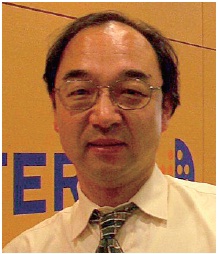Katsuro Kitamatsu is Editor, Japanese Language Services, at Reuters Japan. He was previously a journalist at Nihon Keizai Shimbun (Nikkei, Japan’s leading business newspaper). Born and raised in Shizuoka and a graduate of Waseda University, he has also lived in Toronto and London. Kirk R. Patterson caught up with him.
WEEKENDER: Why did you want to become a journalist?
KITAMATSU: After university, I decided that I wanted a job that contributed to society, not just work to make money. Having studied political science, I was attracted to the idea of being a member of the “Fourth Estate,” helping ensure that public opinion influences public policymaking. I decided to join Nikkei because it has an impact on opinion leaders and members of the business community.
What jobs did you do at Nikkei?
For four years, I worked in the production department, which handles the headlines and layout of all articles. It was a great learning process, one that taught me how a newspaper is put together, as well as making me understand how powerful and influential headlines can be.
I then was transferred to a reporting beat, starting off with the General News Department, covering kidnappings, murders, and other aspects of “real life!”
I had two overseas postings, in Toronto (1990-1993) and London (1996-1999). Between and after those assignments, I worked on Nikkei’s English-language weekly newspaper, which provides non-Japanese, in Japan and overseas, with information on Japanese business and finance. My last position, as the front-page editor for that newspaper, helped me understand how to communicate across cultures.
Based on your experience, how would you compare Western and Japanese styles of journalism?
The two systems differ in many ways. Western journalists tend to pay more attention to the individual who is actually making the news, while Japanese journalists view news as actions by the group or organization to which the person belongs. In a Western newspaper article, one will almost always see a quote by a named individual, along with an indication of his or her position or role in the story. In a Japanese newspaper, however, such a quote is not a priority as long as the story reports the news accurately.
Japanese media are just recently paying more attention to investigative reporting, which is very common in the U.S. or UK, and this is an area where Japanese newspapers should invest more resources.
As in the West, Japanese reporters are under heavy pressure to get exclusives. One unique aspect of Japanese journalism is the custom of visiting politicians and other senior people at their homes in order to get quotes and insights ahead of competing publications.
When and why did you decide to change jobs and move to Reuters?
I moved to Reuters in 2002, after 26 years at Nikkei. I was really enjoying my time at Nikkei, and I wasn’t thinking of making a change, but a headhunter contacted me about the opportunity at Reuters. I was attracted by the idea of testing myself as a professional in the broader media world. Having only worked in Nikkei, it was hard to know how my qualifications and abilities measured up to those of other journalists.
What are your duties at Reuters?
I oversee the writing of Japanese-language news articles for our on-line information service, which is delivered to financial institutions and other subscriber clients. The articles cover both foreign news topics, translated from English, and original articles on Japanese business and economic issues.
What is most satisfying about your job?
Reuters gives my team and me considerable support for operating a quality information service that can effectively compete with domestic media in Japan. I get particular satisfaction when we scoop Asahi and the other major Japanese media organizations, especially as that will hopefully stimulate the development of an even stronger media system in Japan.
As in the past, I get a lot of satisfaction from helping build an influential, respected news service that affects Japanese opinion leaders. That was a major reason for choosing this career in the first place, and in my current position I have an opportunity to do that.
Based on your almost 30 years of experience as a journalist, what do you think are the issues facing the Japanese media system?
The basic role of the Japanese media remains unchanged, which is to help set the public policy agenda, for both opinion leaders and the public. But how the media go about fulfilling that role needs to be reassessed. For example, journalists should focus more on investigative reporting, the press clubs (associated with government ministries and business organizations) should be more open to foreign media, and there should be more employment mobility for journalists.
Kirk R. Patterson, the Dean of Temple University, can be contacted at [email protected]









